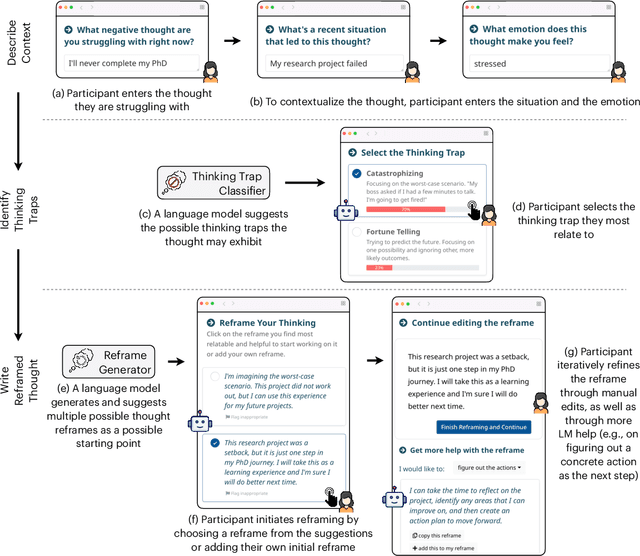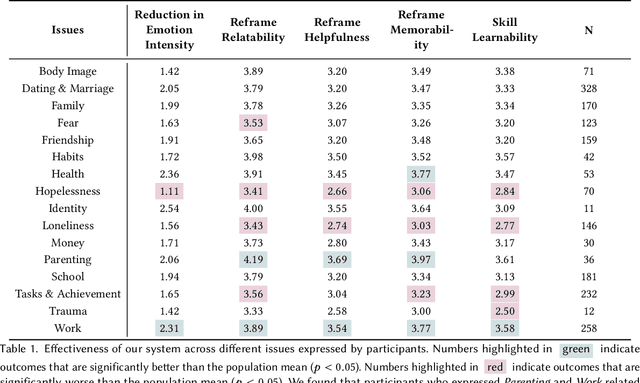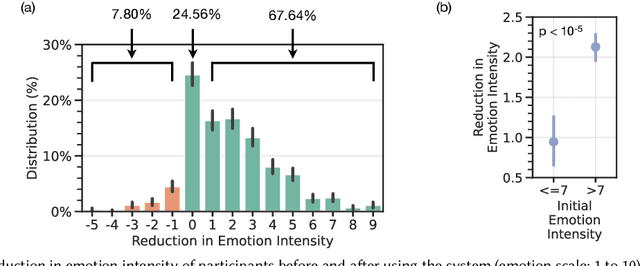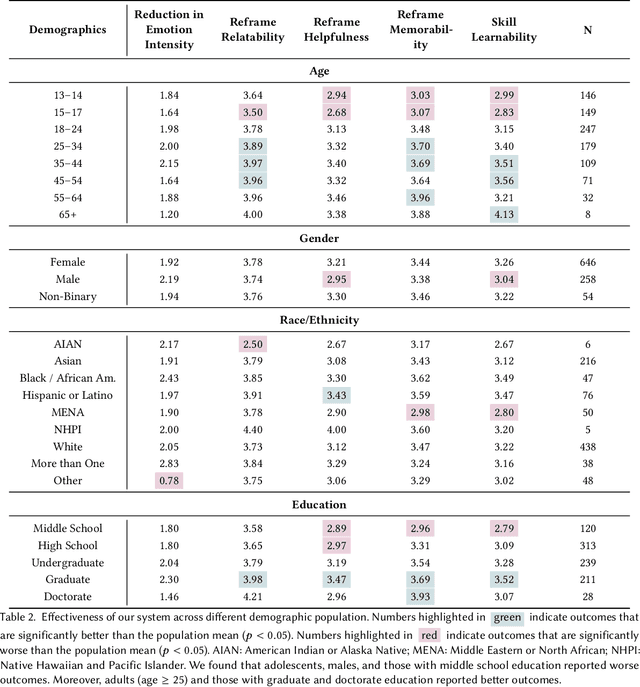Kevin Rushton
Facilitating Self-Guided Mental Health Interventions Through Human-Language Model Interaction: A Case Study of Cognitive Restructuring
Oct 24, 2023



Abstract:Self-guided mental health interventions, such as "do-it-yourself" tools to learn and practice coping strategies, show great promise to improve access to mental health care. However, these interventions are often cognitively demanding and emotionally triggering, creating accessibility barriers that limit their wide-scale implementation and adoption. In this paper, we study how human-language model interaction can support self-guided mental health interventions. We take cognitive restructuring, an evidence-based therapeutic technique to overcome negative thinking, as a case study. In an IRB-approved randomized field study on a large mental health website with 15,531 participants, we design and evaluate a system that uses language models to support people through various steps of cognitive restructuring. Our findings reveal that our system positively impacts emotional intensity for 67% of participants and helps 65% overcome negative thoughts. Although adolescents report relatively worse outcomes, we find that tailored interventions that simplify language model generations improve overall effectiveness and equity.
Cognitive Reframing of Negative Thoughts through Human-Language Model Interaction
May 04, 2023



Abstract:A proven therapeutic technique to overcome negative thoughts is to replace them with a more hopeful "reframed thought." Although therapy can help people practice and learn this Cognitive Reframing of Negative Thoughts, clinician shortages and mental health stigma commonly limit people's access to therapy. In this paper, we conduct a human-centered study of how language models may assist people in reframing negative thoughts. Based on psychology literature, we define a framework of seven linguistic attributes that can be used to reframe a thought. We develop automated metrics to measure these attributes and validate them with expert judgements from mental health practitioners. We collect a dataset of 600 situations, thoughts and reframes from practitioners and use it to train a retrieval-enhanced in-context learning model that effectively generates reframed thoughts and controls their linguistic attributes. To investigate what constitutes a "high-quality" reframe, we conduct an IRB-approved randomized field study on a large mental health website with over 2,000 participants. Amongst other findings, we show that people prefer highly empathic or specific reframes, as opposed to reframes that are overly positive. Our findings provide key implications for the use of LMs to assist people in overcoming negative thoughts.
 Add to Chrome
Add to Chrome Add to Firefox
Add to Firefox Add to Edge
Add to Edge